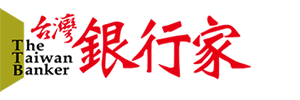The Taiwan Banker


The main reasons for Taiwan’s slowing economic growth in recent years include weak domestic consumer and investment demand, a blind social pursuit of cost performance (CP), and unwillingness to bear price risk –a psychic demon that exists inside all of us. Although Taiwan’s trade surplus continues to grow, that creates obstacles for domestic growth.
Examining the balance of payments, its outstanding export performance in recent quarters has caused the current account surplus to reach record highs, while capital has continued to rapidly flow out. Data from May showed an accumulation over US$ 360 billion (current account surplus) over 31 consecutive quarters, exceeding the capital account outflows of over NT$ 10 trillion. Some public opinion calls this capital flight, even attributing the cause to tightening cross-Strait relations. In fact, the main component of these outflows is an increase in foreign debt security investment by insurance companies. When Taiwan accumulates large amounts of life insurance, capital outflows become the only way to meet the requirements of its usage.
Life insurance is the main way Taiwanese people save for retirement. They do so in amounts several times that of domestic negotiable securities, highlighting the CP value myth, always going after the biggest bowl for the lowest price.
Take as an example Takao Nozaki, a manager of a ramen noodle chain who immigrated to Tainan from Japan, who analyzed Taiwan’s pursuit of CP from the perspective of “Taiwanese fried chicken.” Operators often sacrifice worker and food safety – just as much in the financial industry as the food industry. Because consumers only want more for less, financial products are compared by fees. When price is the only consideration, however, asset allocation risk is ignored, exposing vast amounts of Taiwanese assets to international systemic risks. If something like the 2008 crisis reappears, asset losses will be considerable.
Aside from private inattention to risk, in my past experience as a local government financial administrator, I myself felt that Taiwan’s public sector also had insufficient awareness of risk, further showing need Taiwan to increase its awareness of risk.
Because of the savings surplus, investing only in fixed deposits and bonds will certainly restrict the development of a country. Thus, in order to create a link between risk and reward, in 2013, Japan implemented tax-free Nippon Individual Savings Accounts (NISA), which guided small capital from savings into investment. After the first effects of this policy appeared, Junior NISA accounts were opened for youth, guiding them to participate into investing as early as possible. In recent news reports, Japan youths have begun buying stocks, creating a link between industrial development and savings, and slowly changing the sense of weakness after the collapse of the bubble.
Taiwan also hopes to follow the NISA experience, and has proposed to establish a TISA system. Unfortunately, based on repeated responses from the Ministry of Finance, since deductions can only be applied to “income,” “investment” cannot be exempted, so promotion is not possible. In fact, the TISA proposal is to let the government share the risks of investment, not to give the winner the final reward after risk liquidation. Only the latter would show the value of risk before and after the event.
After all, only through risk bearing can opportunity be grasped. An overprotected society may eventually turn into mama’s babies. Transformation of Taiwan’s investment environment requires a clear sense of risk and apportionment. We still have a long way to go on this road.